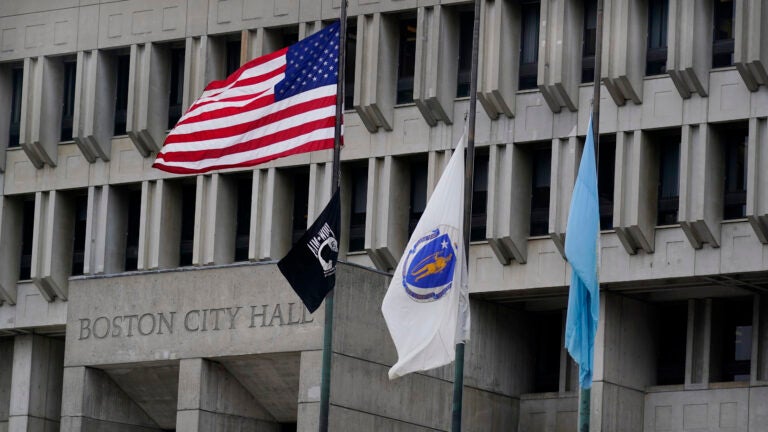Newsletter Signup
Stay up to date on all the latest news from Boston.com

Following a veto from Mayor Michelle Wu last month, the Boston City Council on Wednesday approved a measure that would still give the mayor and councilors pay raises in the coming years, but would also delay the cash bump for the mayor for four years and set a gradual increase for councilor salaries beginning in 2024.
Councilors first voted to override Wu’s veto, which pushed back on the council’s proposed raise of about 20 percent — higher than the 11 percent the mayor initially proposed for top elected officials.
Immediately afterward, however, councilors then voted to pass an amendment to slowly raise councilor pay over a three-year period.
Under that measure, councilors would get a bump up from their current salary of $103,500 to $115,000 in 2024, $120,000 in 2025, and $125,000 in 2026.
The mayor’s salary, meanwhile, would jump from $207,000 to $250,000 in 2026. Other top administrators, including the police and fire commissioners, would also get pay raises.
On both votes, councilors voted 9-4, with the same factions voting for and against. The opposition votes came from Council President Ed Flynn, Councilor Frank Baker, Councilor Michael Flaherty, and Councilor Erin Murphy.
The votes came after the council ended its fiery re-districting process to establish a new political map for the city. The same four councilors also voted to oppose the map that was approved Wednesday.
Notably, the votes against the pay raises are a departure from the council’s unanimous support for its initial counter offer to Wu early last month. That measure would have given councilors a larger salary in much shorter order, with an annual salary of $125,000 by 2024.
Councilor Kenzie Bok called the amendment councilors ultimately approved on Wednesday a responsible and reasonable proposal that would keep councilor raises at a rate more in line with the increases the city’s public workforce receives.
Bok and several councilors acknowledged the uncomfortable nature of the council having to vote, under law, to give councilors their own raises. (Notably, the pay hikes will not kick in until after the next election cycle).
That said, some councilors said they are aware of pay inequities and challenges other city workers face and remain committed to fighting for better pay and benefits for those employees, too.
“We know that housing is so expensive here in the city of Boston. We do this with recognition of the fact that we need to raise all of our salaries,” Councilor Ruthzee Louijeune said.
Louijeune, who chairs the council’s Committee on Government Operations, cited how she has fought for pay raises for her own father, who, at 73 years old, makes “a very, very low wage,” and the council’s track record of supporting local unions.
“We’ll be as aggressive if not more aggressive when fighting for salary increases for all of our city workers so we can attract and retain talent,” she added.
Bok said the amendment “is going to put pressure on us to make sure we’re supporting good salaries for our municipal workforce that align with that.”
“But frankly I think we all know that in terms of competing for talent in the city of Boston and compensating people appropriately we’re going to need to be doing that over the next couple of years,” she said.
A spokesperson for Wu said in an email to Boston.com Thursday the mayor will review the council’s amendment in the coming days.
Wu first broached the subject of raises in August with a proposal of more modest figures to raise the mayor’s salary to $230,000 per year and councilors’ annual salaries to $115,000.
The amounts followed her administration’s review of salary ranges for positions throughout the city, the findings of which were brought to the Compensation Advisory Board. The analysis determined Boston is behind its peers across the state and around the country when it comes to pay at city hall.
The board, in turn, offered a set of recommendations that Wu then put forward to the council for approval.
In a letter accompanying her veto, Wu asked the council to reconsider picking up her original pay raise vision.
Among her reasons for vetoing the council’s offer, Wu said pay raises for elected officials should more closely mirror those received by other public employees in the city.
“Like all workers, our elected officials should receive salary increases, but they should square with the increases that our frontline workers have received and are receiving in the contracts that we continue to settle,” Wu wrote at the time.
Stay up to date on all the latest news from Boston.com
Stay up to date with everything Boston. Receive the latest news and breaking updates, straight from our newsroom to your inbox.
Conversation
This discussion has ended. Please join elsewhere on Boston.com